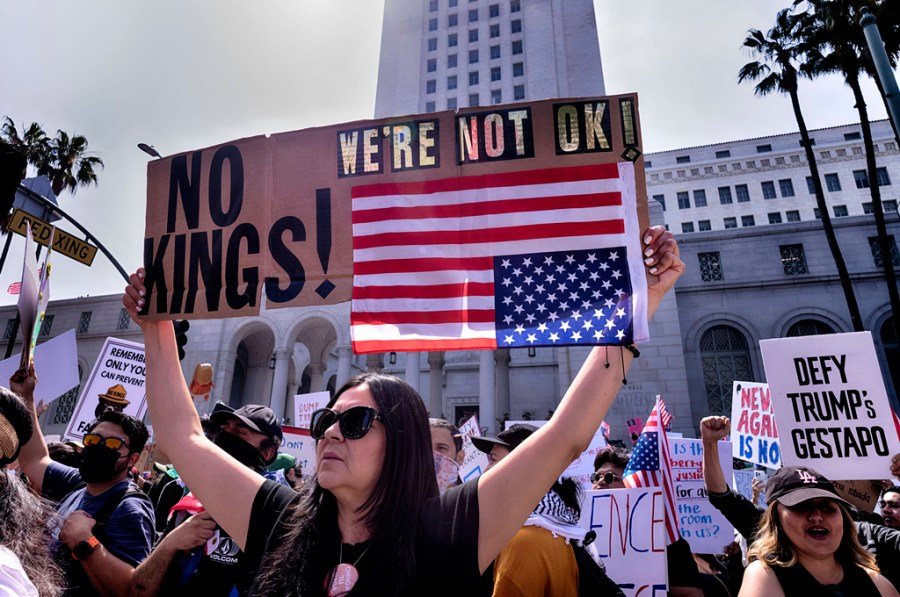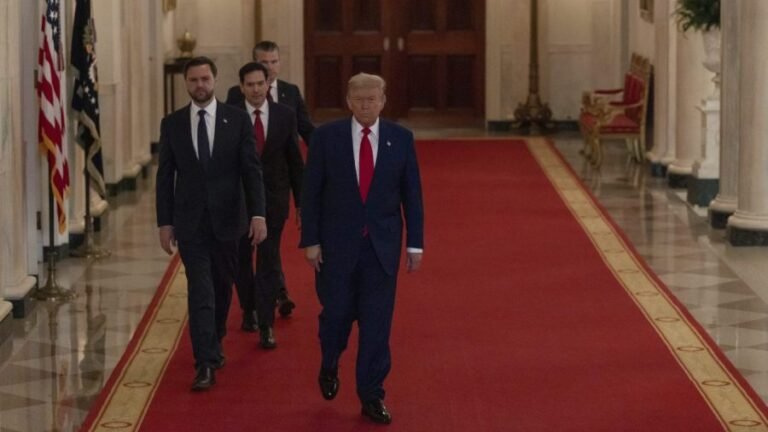
Resistance to tyranny, suspicion of concentrated power, and a firm belief in the democratic ideals that birthed this republic. It’s a noble struggle. But for all their passion and theatrical flair, the historical literacy behind the “No Kings Since 1776” slogan leaves much to be desired.
In fact, the protestors missed the mark by several centuries.
Yes, the U.S. declared independence from the British Crown in 1776. But the kind of “king” these protesters seem to fear had already ceased to exist in Britain long before that. By the time George III ascended the throne, British kings were largely figureheads, bound by constitutional limits and dependent on Parliament to govern.
The Glorious Revolution of 1688 had already drastically curtailed the powers of the monarchy. And indeed, if you want to pinpoint when monarchs lost their teeth, you need to look even further back, to 1215, when rebellious English barons forced King John to sign the Magna Carta.
That document didn’t create democracy, but it did begin a centuries-long process of transferring power away from the crown and into the hands of parliaments and assemblies. So, by the time the American colonies revolted, they were not really rising up against a tyrannical king, but against an unresponsive and overreaching Parliament.
The rallying cry of the American Revolution — “No taxation without representation” — wasn’t an anti-monarchist slogan. It was an anti-parliamentarian slogan. The colonists didn’t object to authority per se — they objected to being taxed and ruled by a body in which they had no voice. And they weren’t demanding the abolition of kingship. They were demanding accountability, proportionality, and representation. They were asking for a seat at the table.
Fast-forward to today, and that slogan might resonate more than ever. We don’t live under a king, but we do live under a political system that often behaves as if it’s immune to public influence. Our Congress — designed to be the voice of the people and a check on executive power — is frequently in lockstep with the president, regardless of which party is in office. Whether through partisan loyalty or political cowardice, our legislators often abdicate their role as a balancing force. They don’t deliberate. They defer. They don’t question. They rubber-stamp.
The real issue isn’t kingship but representation. And in the absence of real legislative independence, the presidency has become more monarchical than anything George III ever imagined.
And this didn’t start in 2025 or even in 2017. Every American president in modern history has wielded powers the British monarch couldn’t have dreamed of: Executive orders, foreign military interventions without Congressional approval, surveillance regimes, and massive influence over the national budget.
If protesters truly want to challenge creeping authoritarianism, the more accurate message would be: “No taxation without genuine representation.” That would strike at the heart of the issue. If Congress does not act independently, if it does not reflect the interests and concerns of the people, then we are not truly being represented. And if we are not being represented, then why are we funding the machine?
Of course, no one is seriously proposing that Americans stop paying taxes overnight. Civil disobedience has its limits. But protest must have a point, and slogans must have meaning. A movement that aims to hold power accountable must aim at the right target. “No Kings” is, at best, historically inaccurate, and at worst, a distraction from the deeply rooted, troubling democratic predicament in which we find ourselves. A government system that would have the Founding Fathers turning in their graves.
Imagine if all that energy, creativity, and public spirit were channeled instead into a campaign to restore Congressional independence, to demand term limits, to break the iron grip of lobbyists, to push for electoral reform, or to hold legislators to account for every vote they cast. That would be a revolution worth marching for.
So, to the protesters in the streets: your instincts are right. Power must be kept in check. But your history is off, and your slogan is weak. Don’t fear a king who never ruled you. Fear a Congress that no longer represents you.
Daniel Friedman is professor of political science at Touro University.


